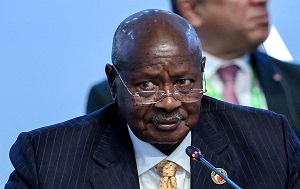According to the analyst, the issue stems not from party politics, but from the continent’s continued reliance on foreign models of governance.
Dr Benjamin Anyagre Aziginaataeg, head of the Afro-Continental Union Consult, described Chad’s unfolding unrest as the latest consequence of what he called "a neo-colonial system of democracy that was never designed for African realities."
His comments came in the wake of violent clashes between Ngabaya farmers and Fulani herders, which reportedly escalated after inflammatory messages circulated on social media urging communities to take up arms. Masra, a known opponent of President Mahamat Idriss Déby Itno, has been accused of inciting tensions, though no formal charges have been made public.
Supporters of Masra’s Transformers Party say he was abducted by state forces, an accusation the government has yet to address.
But for Dr Aziginaataeg, the deeper concern isn’t just the treatment of opposition figures. It’s the framework within which such conflicts keep playing out.
“This isn’t just about Masra,” he said. “This is about a system that labels dissent as dangerous and pits citizens against each other in the name of democracy. But what kind of democracy are we really practising?”
He pointed to a need for Africa to r think its democratic structures, moving away from imported Western systems and towards governance models rooted in local traditions and communal consensus.
Referencing the leadership style of Burkina Faso’s late revolutionary, Captain Thomas Sankara, Aziginaataeg described an alternative democratic tradition, where communities openly select leaders in public forums, without political parties dominating the process.
“People used to gather, see who wanted to lead, and make a decision based on trust and shared values,” he said. “That kind of direct democracy was closer to our cultures and far more stable.”
He also drew parallels between Chad and other African nations where opposition figures are increasingly under pressure. In Tanzania, opposition leader Freeman Mbowe of the Chadema party is once again facing court appearances, raising alarms about a growing intolerance toward dissent on the continent.
“When states use legal systems to silence rivals rather than uphold justice, democracy loses its meaning,” he warned. “It becomes a tool of control, not a system of representation.”
--ChannelAfrica--













